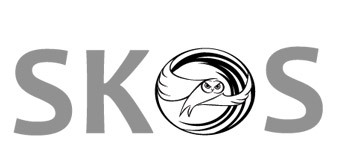ISKO UK events
Past events
DIS has organized a successful series of events for ISKO UK, including two major half-day workshops, 'Sharing vocabularies on the Web', and 'Ranganathan revisited: facets for the future'

RECORDS AND INFORMATION MANAAGEMENT IN TRANSITION: all the better for teamwork. September 2009
This ISKO-UK meeting proved another success in bringing together professionals from diverse backgrounds. Teamwork is needed to design and implement a records management system that works well from the differing points of view of users inputting the records, staff trying to find past records, and managers seeking efficiency and effectiveness in their workforce.
The meeting brought together an audience of 60 including records managers, information managers, IT managers, academics and consultants from many sectors.



Marc Fresko (Inforesight), Cerys Hearsey (Metataxis), Liz Scott-Wilson (Tubelines)
More ....

HUMAN-MACHINE SYMBIOSIS FOR DATA INTERPRETATION April 2009
Much work on search, retrieval and interpretation is caught between the Scylla of restrictive taxonomies and the Charybdis of the semantic web. Too much of IT practice is based on the assumption that the human brain is a "limited capacity information processing device" (A-Level psychology text book) and that language has a common structure and meaning.
In this presentation David Snowden reported on pioneering work on the use of semi-constrained signifier sets, allowing humans to tell and index their own material within a loose structure. This work enables the pattern basis of human intelligence to be augmented by information processing power, without losing the insights that are essentially human in nature. The development is based on more than a decade of work in weak signal detection and on overcoming cognitive bias in intelligence and decision support systems.

A devotee of Wagner and of Welsh rugby, David Snowden is also the founder and Chief Scientific Officer of the consultancy organisation Cognitive Edge. He describes his work as in the area of naturalising sense-making, seeking to base social science research and practice on natural science. A pioneer in the application of complex adaptive systems theory to a range of social issues, and in the development of narrative as a research method, Snowden's originality guarantees a compelling presentation. Snowden's work extends across government and industry in a variety of fields including knowledge management, strategic planning, conflict resolution, weak signal detection, decision support and organisational development. He holds visiting professorships in the universities of seven countries from Australia through China and Italy to the UK .
David Snowden
More .....

SHARING VOCABULARIES ON THE WEB via SKOS (Simple knowledge organization system) July 2008
This event, the third in ISKO UK's KOnnecting KOmmunities series, was an opportunity to learn more about SKOS (Simple Knowledge Organization System), the up-and-coming standard for publishing controlled vocabularies on the Web.
The topic proved to be enormously popular. There were 94 people present coming from government, publishing and broadcasting agencies, public service organisations, commercial companies and academia. Reassuringly many practitioners were present including subject matter experts, librarians, information architects, software developers etc.
We were fortunate in having speakers from the forefront of SKOS development and implementation who were able to draw a general picture of the role of knowledge organization systems in the Semantic Web development but also guide us through the intricate details of what it means to express controlled vocabularies in such a way so that they their semantics can be exploited in information integration and discovery.
A lively discussion enabled all to develop their own thinking on the opportunities to share and even generate new information through the combination of linked information resources and the vocabularies supporting them.
The afternoon represented a refreshing step forward in thinking through the more powerful application of controlled vocabularies and offered a valuable learning experience.








Alistair Miles, Antoine Isaac, Stella Dextre Clarke, Leonard Will, Nicholas Cochard, Douglas Tudhope, Ceri Binding, Bernard Vatant
More ....
 AGENDA FOR INFORMATION RETRIEVAL. June 2008
AGENDA FOR INFORMATION RETRIEVAL. June 2008
Three eminent speakers: Brian Vickery, Stephen Robertson and Ian Rowlands, addressed issues that have been on the information retrieval agenda from the 1950s to the era of Google.
Brian Vickery took a look back at the development of information retrieval, and some of the problems it has faced. A chemist at the start of his career, Brian Vickery has had enormous influence on knowledge organization since 1952, as one of the founder members of the Classification Research Group. For the last ten years Stephen Robertson has been a researcher at the Microsoft Research Laboratory. In his talk, he gave a non-technical overview of some current concerns of core IR research, in particular on the use of different kinds of evidence in searching and ranking. Ian Rowlands, reader at DIS, UCL, and a member of its CIBER research group is the author of the recently published report on searching behaviour of the Google generation', commissioned by JISC and the British Library. Ian focused on the issues from the perspective of the user and presented some findings related to the users' information behaviour that disperse the myth of so called 'Google generation'.
The talks were followed by a lively and stimulating discussion chaired by Stella Dextre-Clarke.



Brian Vickery, Stephen Robertson, Ian Rowlands
More ....
CONFRONTING THE FUTURE: organizing and managing knowledge in the Web 2.0 age
DIS will co-host with ISKO UK an open meeting on March 5 2008
Two distinguished speakers gave their views on where the new shift in disintermediation brought by Web 2.0 and related changes in information technologies are leading our profession.
Paul Dodgson is Vice-Chair of the Records Management Society of Great Britain and will describe where he sees the increasingly important Records Management function going in the coming years.
Peter Griffiths is CILIP Vice-President 2008 and has enjoyed a long career in government libraries. Peter will tell us how this heterogeneous professional body sees the future for librarians and information scientists in both the public and private sectors.
More ...
RANGANATHAN REVISITED: FACETS FOR THE FUTURE
5th November 2007
Venue University College London
Sir David Davies Lecture Theatre (G08), Ground Floor, Engineering Faculty







Claudio Gnoli, Jeroen Wester, Mark Stapleton, Matt Adams, Jan Wylie, Simon Eaton, Vanda Broughton
ISKO UK held its second KOKO (KOnnecting KOmmunities) event from 14:00 - 20:00 on 5th November entitled Ranganathan Revisited: Facets for the future. The intention was to explore the current status of faceted classification from both theoretical and practical viewpoints. The event was sponsored by Factiva from Dow Jones and the venue was provided by the Department of Information Studies (DIS) at University College London UCL). Eighty-one people attended.
S. R. Ranganathan was the Indian librarian and academic who, in the 1930s, developed the theory of faceted classification. Faceted classification is an approach to presenting and organizing knowledge based on the identification of fundamental subject categories (facets') that allows the combination of relevant values from one or more facets to define a compound subject with great precision.
More...
TOOLS FOR KNOWLEDGE ORGANIZATION TODAY

4th September 2007
14:30 - 17:30
Venue
University College London
Gower St, WC1E 6BT
Cruciform Lecture Theatre 2
ISKO UK (in cooperation with the UCL Department of Information Studies,) held a half-day event titled "Tools for Knowledge Organization Today". The Seminar explored current developments in knowledge organization systems and the work of groups in the knowledge organization field, such as NKOS and BCS-KIDMM. The programme included presentations on the new standard for structured vocabularies (BS 8723) and an automatic metadata generation project. Speakers included Stella Dextre Clarke, convenor of the working party on the new standard, and Douglas Tudhope, Chair of NKOS and Professor of Computer Science at Glamorgan University.
The seminar was preceded by a brief business meeting for ISKO UK members. There were 46 participants.
More ...
International Conference of the International Society for Knowledge Organization

In 2004 DIS hosted the 8th International ISKO Conference, with Vanda Broughton as Conference Chair. The keynote address was given by Clifford Lynch, Director of the Coalition for Networked Information, and sixty papers were presented by delegates from Europe, America, Africa and Asia.
More ...